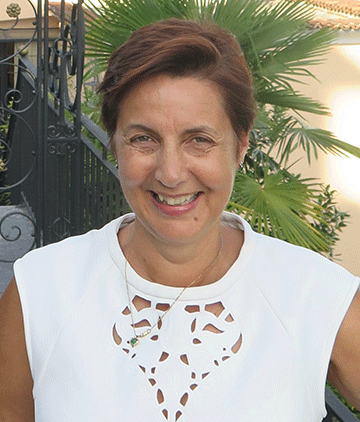National Science Week 2015
ACER news 17 Aug 2015 4 minute readTo celebrate National Science Week 2015 and Canberra exhibition, The League of Remarkable Women in Australian Science, ACER is showcasing one of its own remarkable women in science – Dr Sacha DeVelle.
 Perth-born Sacha joined ACER as Principal Research Fellow in 2012, after being attracted to the varied projects and research-driven aspects of the position. Sacha now plays a major role in the Centre for Science of Learning @ ACER, which brings together researchers from neuroscience, cognitive psychology and education to better understand the underlying processes that lead to successful learning.
Perth-born Sacha joined ACER as Principal Research Fellow in 2012, after being attracted to the varied projects and research-driven aspects of the position. Sacha now plays a major role in the Centre for Science of Learning @ ACER, which brings together researchers from neuroscience, cognitive psychology and education to better understand the underlying processes that lead to successful learning.
When did you first become involved in science?
My undergraduate degree was in Psychology and Spanish at the University of Queensland, and was the impetus for further postgraduate study into the psychology of language. My PhD in Linguistics (language processing) was a natural extension of those early years of study.
I have a rather varied background, having worked for universities, privates companies and in a self-employed capacity in Australia, the United Kingdom, Latin America and East Africa. Science can truly take you anywhere.
In the UK I worked for Cambridge University and then founded and managed a non-government organisation for five years. During that time I was working with the linguistic and educational needs of deaf children in East Africa, in order to integrate them into mainstream education. My work in Latin America was in an advisory role to large companies such as Roche Pharmaceuticals and Sabre Holdings, offering linguistic and educational expertise to their staff. All of these experiences exposed me to the different ways language is processed.
What inspired you to become involved in the science behind education?
I have a particular interest in how the brain processes language that comes from the experimental approach to my PhD thesis. The cognitive processes that underlie learning are closely related to how language is understood – to what extent the feedback message is properly construed is part of that process.
What do you do on a day-to-day basis at ACER?
Each day I manage the overall direction of the ACER Perth office, and help to look for business development opportunities. I also work on multiple projects and carry out research in the psycholinguistics of feedback and learning, and the role of creativity as a measure of learning.
Why is the Centre for Science of Learning @ ACER important?
The Centre has a focus on educational neuroscience, and seeks to understand how learning takes place within the brain, and how to translate those findings to classroom settings. This is not an easy transition, and one that has been discussed in the literature for some years. The ongoing translation process will allow not only educators at the coalface to better understand how learning takes place, but also educate psychologists and neuroscientists to better understand how this type of research can be disseminated in the practical realm of the classroom. This is a challenge, but well worth it!
What do you enjoy about your current role?
I enjoy the variety of my role and working in science and research. It involves frequent travel, the opportunity to present on ACER’s work both nationally and internationally, and a diverse range of research to work on. The most challenging aspect is the remoteness of working from Perth, but luckily ACER staff have exceptional skills and experience in working with people near and far.
How do you unwind outside of work?
Being a tennis fanatic, I am probably happiest on the tennis court on a beautiful day with the sun shining. I love the social aspect, the competitive component and the fitness it gives you. I am also currently enrolled in a Diploma of Interior Design that I do long distance.
What’s the way forward for women in science?
It really is vital that we get out there and show the world what women are doing in science, and to promote its diversity. For example, my work in language processing has great value for the field of educational neuroscience. It is highly specialised, but fits well in terms of the methodology and measurement needed to carry out work in this area.